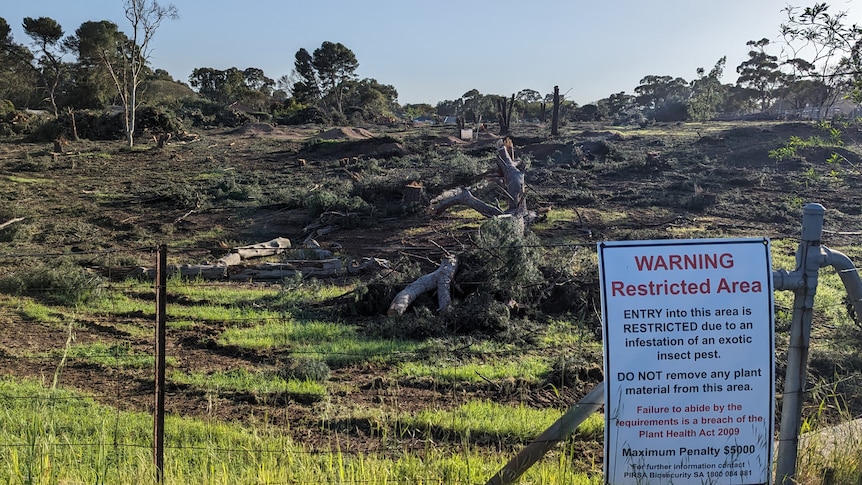By Sam Bradbrook
Copyright abc

South Australia’s $3 billion forestry industry says a pest that kills pine trees and is spread by humans needs to be eradicated.
Giant pine scale was found in pine trees in the north-eastern Adelaide suburbs of Hope Valley and Highbury in 2023.
The pest sucks the sap of pine trees, causing branch dieback and eventually killing the tree.
So far, it has been recorded at the Hope Valley Reservoir, Elliston Reserve, Silverlake Reserve, the aqueduct reserve in Highbury and a business at Holden Hill.
The state government said nearly 1,400 trees had been cleared, with more trees set to be felled this year after further outbreaks at the reservoir and the Highbury Aqueduct Reserve.
Primary Industries Minister Clare Scriven said so far, the outbreak had been contained to the north-eastern suburbs.
“We have had to remove a number of trees, but of course the plan is, as always, to get that balance right,” she said.
“To remove the number of trees that need to be removed to protect the forestry industry and to protect green space, but not any more trees than are absolutely necessary.”
Ms Scriven said where trees had been removed and chipped, they needed to lie untouched for six months before being replanted.
“We’ve replaced these [pine trees] with natives, which is much better for our areas in so many different ways,” she said.
Protecting $3b industry
South Australia’s forestry industry includes estates around the outskirts of Adelaide and in the state’s south-east.
The state produces 35 per cent of Australia’s structural timber for housing.
South Australian Forest Products Association CEO Nathan Paine said giant pine scale was a “blight” on the industry.
“Our main concern is primarily the spread to Forestry SA assets which ring metropolitan Adelaide,” he said.
“We know there’s about a million visitors that go into our forests at Kuitpo and Deep Creek and other places each year.
Giant pine scale has also been identified in Melbourne, where it is currently being managed by authorities.
Mr Paine said South Australia needed to ensure the disease was fully eradicated.
“I think the Melbourne example of moving to management is a cautionary tale because once the tree is infected, it will die and will spread that infection elsewhere,” he said.
Government ‘caught napping’
State opposition leader Vincent Tarzia likened giant pine scale to events such as the ongoing toxic algal bloom and drought affecting the state and said the state government had been slow to take action.
“This is another situation where the government has been really slow to react in terms of dealing with this biosecurity issue,” he said.
“If this were to spread to other forests … it could have serious economic consequences for the state.
“The forestry industry here is worth several billions of dollars and there could be thousands and thousands of jobs that could also be affected.”
He said the number of affected trees had doubled in the past year and the state government needed to take it seriously.
“It’s another situation where the government has been again caught napping,” he said.



